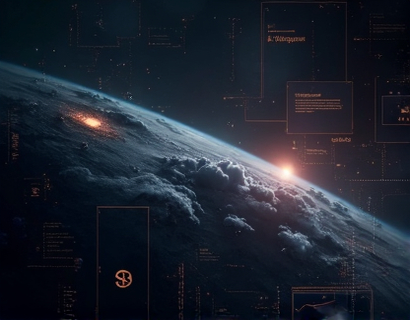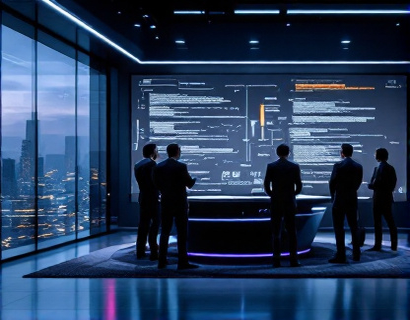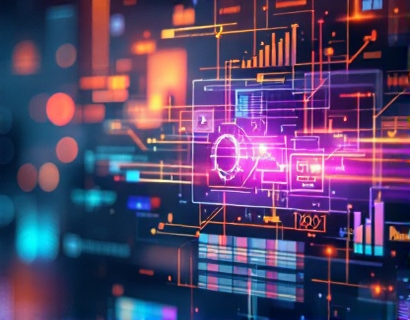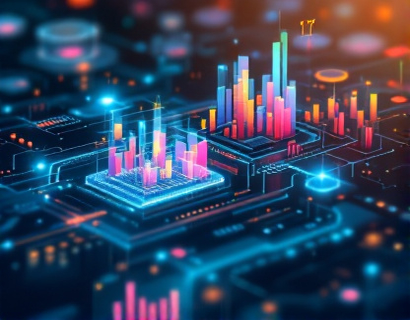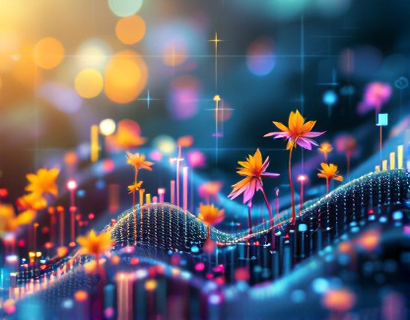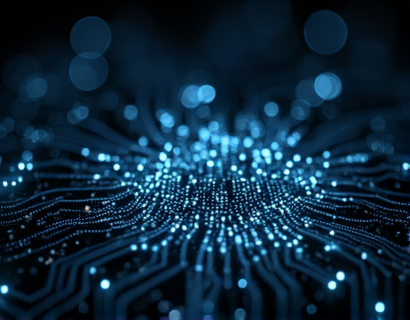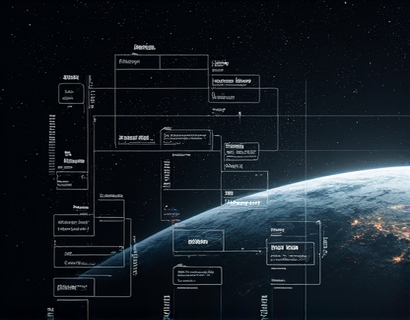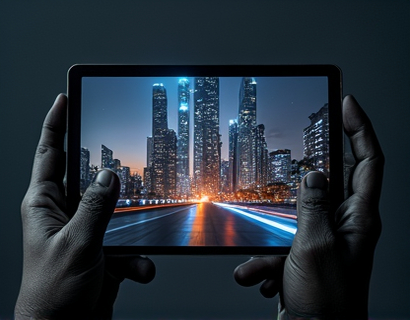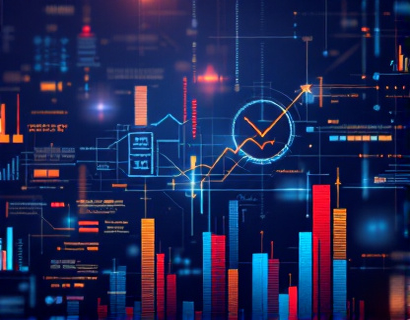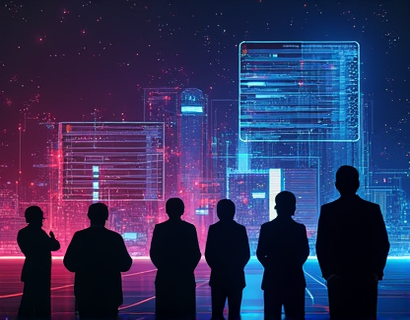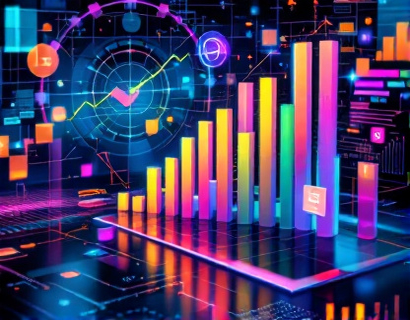Decentralized Productivity: Turbo-Charging Efficiency with AI and Crypto Innovations
The digital age has ushered in a new era of productivity tools and applications, where the convergence of artificial intelligence (AI) and cryptocurrency is redefining how we work and collaborate. This article delves into the transformative potential of decentralized productivity solutions, exploring how AI and crypto innovations are merging to create more efficient, secure, and user-centric tools for tech professionals and early adopters. By leveraging the power of decentralized technologies and intelligent algorithms, these solutions are not only streamlining tasks but also unlocking new levels of efficiency and creativity.
Decentralized applications, or dApps, operate on blockchain networks, which provide a transparent, secure, and tamper-proof environment for transactions and data storage. When combined with AI, these dApps can automate complex processes, analyze vast amounts of data, and provide insights that were previously unattainable. For tech professionals, this means a significant reduction in manual workload, allowing them to focus on higher-value tasks that require human creativity and critical thinking.
AI-Driven Automation in Decentralized Productivity
One of the most significant advantages of integrating AI into decentralized productivity tools is the ability to automate repetitive and time-consuming tasks. AI algorithms can learn from user behavior and preferences, predicting and executing actions without human intervention. For instance, AI-powered virtual assistants can manage schedules, prioritize tasks, and even draft emails based on context and previous communications. These assistants can operate across multiple decentralized platforms, ensuring seamless integration and coordination.
In a decentralized environment, these AI-driven assistants can also facilitate smart contract executions. Smart contracts are self-enforcing contracts with the terms of the agreement directly written into code. AI can optimize the execution of these contracts by analyzing real-time data, ensuring that all conditions are met efficiently and accurately. This not only reduces the risk of errors but also speeds up the process, making business operations more agile and responsive.
Enhanced Collaboration through Decentralized Tools
Collaboration is a cornerstone of modern productivity, and decentralized tools are revolutionizing how teams work together. Blockchain-based platforms enable secure and transparent sharing of documents and data, eliminating the need for intermediaries and reducing the risk of data breaches. AI enhances this by providing advanced collaboration features such as real-time translation, automated summarization of meeting notes, and intelligent task assignment based on team members' availability and expertise.
For example, a decentralized project management tool can use AI to analyze the progress of tasks and automatically reassign resources to ensure optimal utilization. It can also detect potential bottlenecks and suggest proactive measures to keep the project on track. This level of automation and insight is invaluable for remote teams and global organizations, where coordination across different time zones and regions can be challenging.
Security and Privacy in Decentralized Productivity
Security and privacy are paramount in any productivity solution, and decentralized technologies offer robust protections. Blockchain's inherent security features, such as cryptographic hashing and consensus mechanisms, ensure that data is immutable and resistant to tampering. AI can further enhance security by detecting and mitigating threats in real-time, identifying anomalies and potential vulnerabilities before they can be exploited.
Privacy is another critical aspect, and decentralized solutions often prioritize user control over data. Users can choose what information to share and with whom, thanks to blockchain's permissioned access controls. AI can assist in managing these permissions and ensuring compliance with data protection regulations, providing an additional layer of security and peace of mind.
Decentralized Marketplaces for Productivity Tools
The rise of decentralized marketplaces is another exciting development in the realm of productivity tools. These platforms allow developers to create, distribute, and monetize their applications without the need for centralized authorities. AI can optimize these marketplaces by recommending tools based on user needs and preferences, analyzing market trends, and predicting the success of new applications.
For instance, a decentralized marketplace can use AI to analyze user feedback and usage patterns to identify the most popular and effective productivity tools. This data can help developers refine their offerings and create more tailored solutions. Additionally, blockchain-based token economies can incentivize users to contribute to the development and improvement of these tools, fostering a community-driven approach to innovation.
Tokenization of Productivity Assets
Tokenization, a key feature of blockchain technology, is transforming the way productivity assets are managed and utilized. By representing assets such as time, skills, and resources as tokens, decentralized platforms can create new economic models for productivity. For example, users can tokenize their expertise and offer it as a service on a decentralized platform, earning tokens that can be used to purchase other services or goods within the ecosystem.
AI can enhance this process by matching users with the most suitable opportunities based on their skills and availability. It can also predict market demand for certain skills, helping users to upskill and stay relevant in a rapidly changing job market. This tokenization not only provides a new revenue stream for individuals but also creates a more dynamic and flexible economy for productivity services.
Challenges and Considerations
While the potential of decentralized productivity tools powered by AI and crypto is immense, there are several challenges and considerations to keep in mind. One of the primary challenges is the technical complexity involved in integrating these technologies. Developers need a solid understanding of both blockchain and AI to create effective and user-friendly applications.
Another consideration is the regulatory landscape. As decentralized technologies continue to evolve, regulatory frameworks are still catching up. Ensuring compliance with data protection laws and other regulations is crucial for the adoption and success of these tools. AI can help navigate these regulations by providing real-time updates and compliance checks, but it requires continuous monitoring and adaptation.
User education is also essential. Many professionals are still unfamiliar with blockchain and AI, which can hinder the adoption of decentralized productivity solutions. Providing educational resources and user-friendly interfaces can help bridge this gap, making these technologies more accessible to a broader audience.
Future Prospects
The future of decentralized productivity is bright, with ongoing advancements in AI and blockchain technology promising even more innovative solutions. As these technologies mature, we can expect to see more seamless integration, improved user experiences, and a wider range of applications. The combination of AI's analytical power and blockchain's security and transparency will continue to drive the evolution of productivity tools, making work more efficient, secure, and rewarding.
For tech professionals and early adopters, embracing these decentralized productivity solutions can provide a competitive edge in the digital landscape. By leveraging the power of AI and cryptocurrency, individuals and organizations can unlock new levels of efficiency and collaboration, paving the way for a more productive and innovative future.




